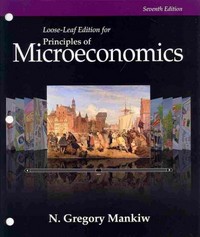Answered step by step
Verified Expert Solution
Question
1 Approved Answer
In 2018 and 2019, the US raised tariffs on imports from China. It also raised tariffs on a subset of products from other countries, mainly
In 2018 and 2019, the US raised tariffs on imports from China. It also raised tariffs on a subset of products from other countries, mainly in machinery and metals. China retaliated and imposed tariffs on imports from the US. At the same time, it also lowered tariffs on imports from the rest of the world. The tariff increases were a major departure from long-run trends towards tariff liberalization across the globe. To analyze the impact of these four sets of tariff changes on global trade, the researchers match the tariffs' movements to global bilateral trade data from the International Trade Centre for the top 50 exporting countries, excluding oil exporters. Their analysis compares the export growth across products that were subject to different tariff increases by the US or China. The US and China reduced exports of products subject to increased tariffs. US exports to China fell by 26.3 percent while exports to the rest of the world increased modestly, by 2.2 percent. China's exports to the US declined by 8.5 percent and its exports to the rest of the world rose by a statistically insignificant 5.5 percent. The researchers further find that trade in the products targeted by the tariffs increased among bystander countries. These nations did more than reallocate global trade flows across destinations; their overall exports to the world increased. Because of this response from the rest of the world, on net, they calculate that the trade war raised global trade by 3 percent
Step by Step Solution
There are 3 Steps involved in it
Step: 1

Get Instant Access to Expert-Tailored Solutions
See step-by-step solutions with expert insights and AI powered tools for academic success
Step: 2

Step: 3

Ace Your Homework with AI
Get the answers you need in no time with our AI-driven, step-by-step assistance
Get Started


